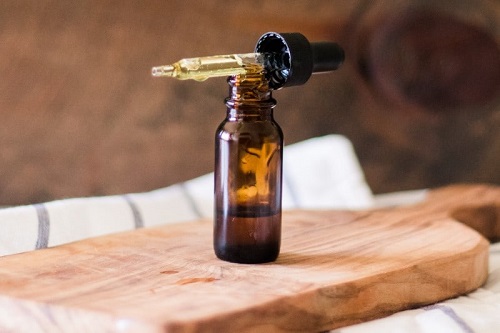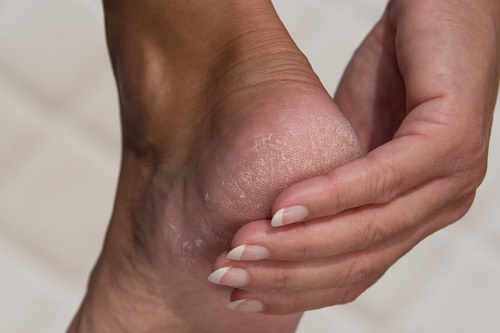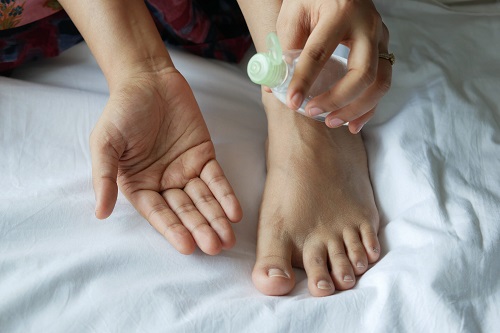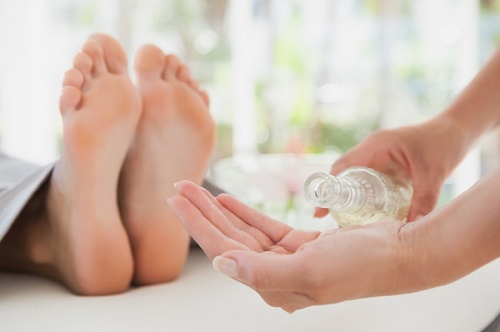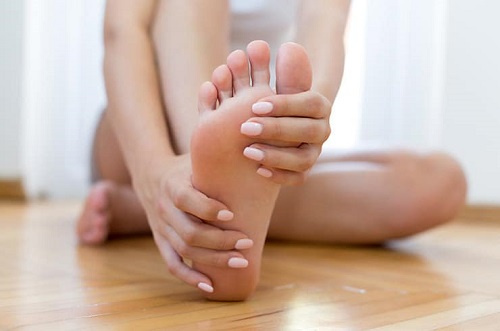Learn how to use Castor Oil for Cracked Heels to bid adieu to unsightly and painful heel fissures in a couple of days!
Cracked heels, a common foot problem, are not only unsightly but can also be a source of discomfort and even pain. However, if you seek a natural remedy, Castor Oil for Cracked Heels is the perfect option!
Discover the Benefits of Rubbing Castor Oil on Botton of Feet here
Cracked Heels: Why it Happens?
Cracked heels, also known as heel fissures, appear as splits or cracks in the skin around the heel. These can be superficial or deep, leading to pain and sometimes infections.
Cracked Heel Causes
- Dry Skin: Lack of moisture can cause the skin to become dry and brittle, leading to cracks.
- Excessive Pressure: Standing for long periods puts extra pressure on the heels.
- Obesity: Additional weight can contribute to the splitting of the skin.
- Improper Footwear: Shoes that don’t support the heels can cause this condition.
Does Castor Oil Help Cracked Heels?
Castor oil is often considered a natural remedy for cracked heels due to its moisturizing and healing properties. Rich in fatty acids, it can penetrate deep into the skin, softening and hydrating the rough, dry areas that often lead to cracking.
Its anti-inflammatory and antibacterial qualities can further aid in reducing any inflammation or infection that might be present. Thus, castor oil can benefit a foot care routine for those dealing with this common issue.
Discover the Benefits of Rubbing Castor Oil on Botton of Feet here
How Does Castor Oil Help?
Castor oil, derived from the seeds of the Ricinus communis plant, has been used for centuries in various health and beauty treatments. But does castor oil help cracked heels? Here’s how:
- Moisturizing Effect: Castor oil is rich in fatty acids that deeply moisturize the skin, healing the cracks.
- Anti-Inflammatory Properties: It can reduce inflammation, soothing the discomfort caused by deep cracks.
- Promotes Healing: The oil can promote the growth of healthy skin, speeding up the healing process.
Ways to Use Castor Oil for Cracked Heels
1. Simple Castor Oil Application
This simple method of applying castor oil directly to the cracked heels takes advantage of the oil’s natural moisturizing and healing properties. The fatty acids in castor oil penetrate deep into the skin, providing necessary hydration and promoting the healing of cracks.
Furthermore, wearing socks and leaving the oil on overnight allows the oil to work its magic for a prolonged period, maximizing its effectiveness.
Steps:
- Wash and dry your feet thoroughly.
- Apply a generous amount of castor oil to the cracked heels, massaging it in.
- Wear cotton socks to lock in the moisture and leave overnight.
- Wash off in the morning with warm water.
- Repeat as needed for best results.
2. Castor Oil and Glycerin Blend
Combining castor oil with glycerin enhances the moisturizing effect, as glycerin is a well-known humectant that draws moisture to the skin. This blend works synergistically to hydrate and heal cracked heels more effectively.
Steps:
- Mix equal parts of castor oil and glycerin.
- Apply the mixture to the cracked heels before bed.
- Wear cotton socks to seal in the moisture.
- Rinse off in the morning with warm water.
- Use daily until cracks heal.
3. Castor Oil and Lemon Soak
Combining castor oil with lemon juice creates a powerful remedy for cracked heels. Lemon’s natural acidity helps exfoliate dead skin, while castor oil hydrates and heals. Together, they offer a refreshing and therapeutic treatment for your feet.
Steps:
- Mix 1 tablespoon of castor oil with the juice of one lemon.
- Soak your feet in warm water for 10 minutes to soften the skin.
- Apply the castor oil and lemon mixture to the cracked heels.
- Leave it on for 15-20 minutes.
- Wash off with warm water and pat dry.
- Apply a moisturizer if desired.
- Repeat 2-3 times a week for optimal results.
Note: Consider your allergic profile and do a patch test on a small part of your skin before applying it to the affected areas.
Learn about Applying Castor Oil on Feet for Detox here
Key Takeaways
The answer to the question, “Does Castor Oil Help Cracked Heels?” is a resounding yes. Its moisturizing, anti-inflammatory, and healing properties make castor oil an effective natural remedy for cracked heels. You can enjoy softer and healthier heels by incorporating castor oil into your foot care routine. Remember to consult with a healthcare provider if the problem persists, as there may be underlying health issues to address.
Discover the Benefits of Using Castor Oil on Feet Overnight here
FAQs
1. Can I Use Castor Oil Daily for My Cracked Heels?
Yes, castor oil is gentle enough to be used daily.
2. Are there any Side Effects of Using Castor Oil for Cracked Heels?
Generally, castor oil is safe to use, but always do a patch test to rule out any allergies. Here are the common side effects of castor oil you must know about.
3. Where can I Buy Castor Oil?
Castor oil is available at most health stores and online. Here’s a guide to get the best quality.

